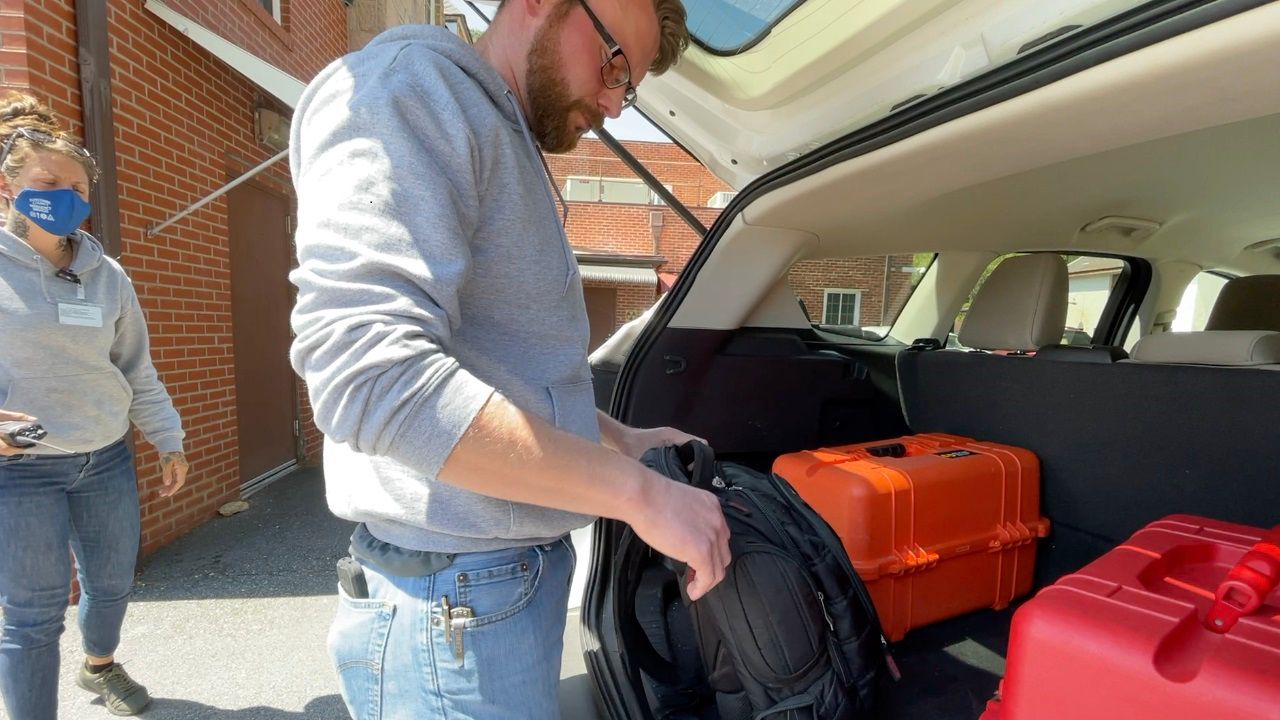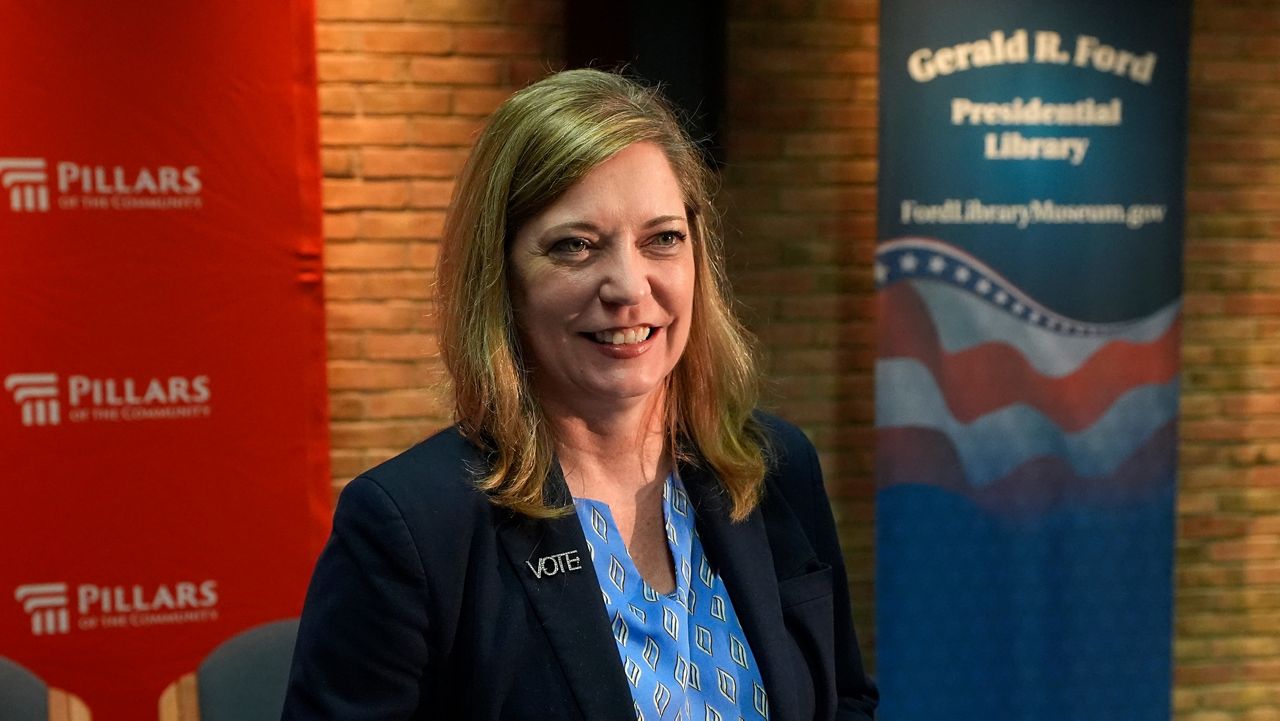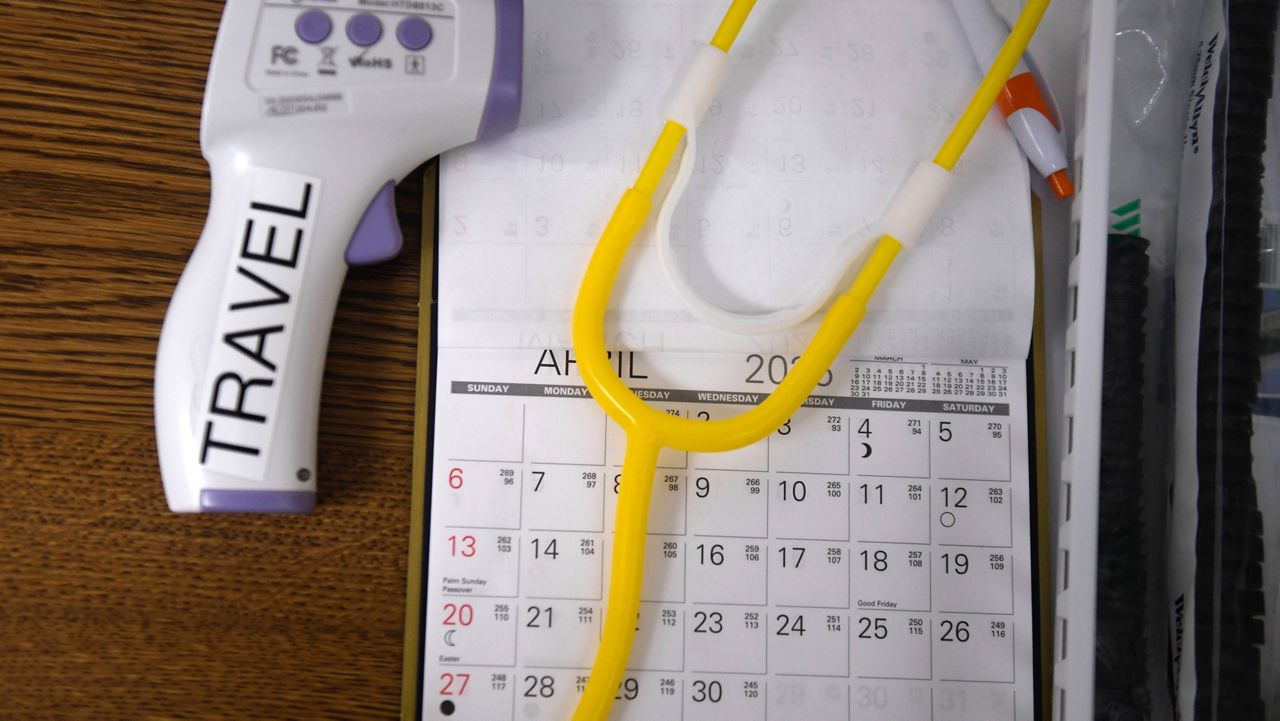BUNCOMBE COUNTY, N.C. — Buncombe County is on a mission to fight the opioid epidemic.
The county wants to help drug users, not just in the moments after an overdose, but also by providing long-term support to make sure they don’t overdose again.
In November, the county formed a team to help those in need called the Post-Overdose Response Team or "PORT".
According to the county, in 2021, the post-overdose team has responded to more than 300 overdoses.
This team is one of only 10 programs across the nation focuses on mental health, community health and opioid response, according to Buncombe County.
The team is made up of community paramedics, a peer support specialist, a mental health clinician and program manager.
Justin Hall is one of the team members who goes out to live 911 calls of a possible overdose. He has battled addiction before, lived to tell his story and now helps others. He works with PORT as a peer support specialist.
Hall is recovering from an opiate addiction for almost five years now. He used for 14 years up until then. According to Hall, his vice was snorting up any pill he could find.
“I've really learned just how powerful that lived experience can be,” Hall said. “You can really connect with people in ways that others can't.”
Narcan may reverse the overdose, but it’s not always going to stop the person from using again and that’s where PORT comes in – to try to connect them to recovery resources, whatever it may look like for them.

“Sometimes, that just means harm reduction resources, so it could be as simple as just providing them with syringes for safe injection or fentanyl test strips to test whatever they're going to use for fentanyl,” Hall said. “Not everybody's always ready to take that big step towards recovery, but for those that are ready, we can help get them connected with detox rehab medication, assisted treatment.”
For Hall, the work is rewarding, but can be personally challenging.
“Going out to people's homes, where it's a similar setting that I may have been in back when I was using,” Hall said. “You may see the pill bottles laying around and drug paraphernalia, things I used to, you know, snort the medication.”
It can be triggering.
“Sometimes, you just go in to these kind of dark, desperate scenarios that remind you of where you were a few years ago,” Hall said.
His team members help him out of that dark place. They focus on each other’s self-care and check in with each other regularly, said Hall.
Lindsley Pritchard is the licensed clinical mental health and addiction specialist on the team.
She usually stands back until the person who overdosed wants her help. Pritchard can give recommendations for next steps, or schedule follow ups with them to do a crisis assessment.
She can also provide therapy and get them connected to support groups. If willing, Pritchard can help them into a medical detoxification facility.
A personal connection to recovery is a part of her success, said Pritchard.
“It really helps to reduce stigma because having all providers, who have not been in your shoes, you can really feel shame,” Pritchard said.
Pritchard said being in recovery themselves, what works for them is constantly changing, so they're able to bring that into the program to help clients, as the needs also change for them.
The consistent engagement with people is working, said Pritchard. What they do for a living, day in and day out, keeps their own recovery in check.
“You’re helping people, you’re supporting people through moments that you've been before,” Hall said. “It's a great reminder of where you've been versus where you are now.”
To learn more about PORT, click here.










